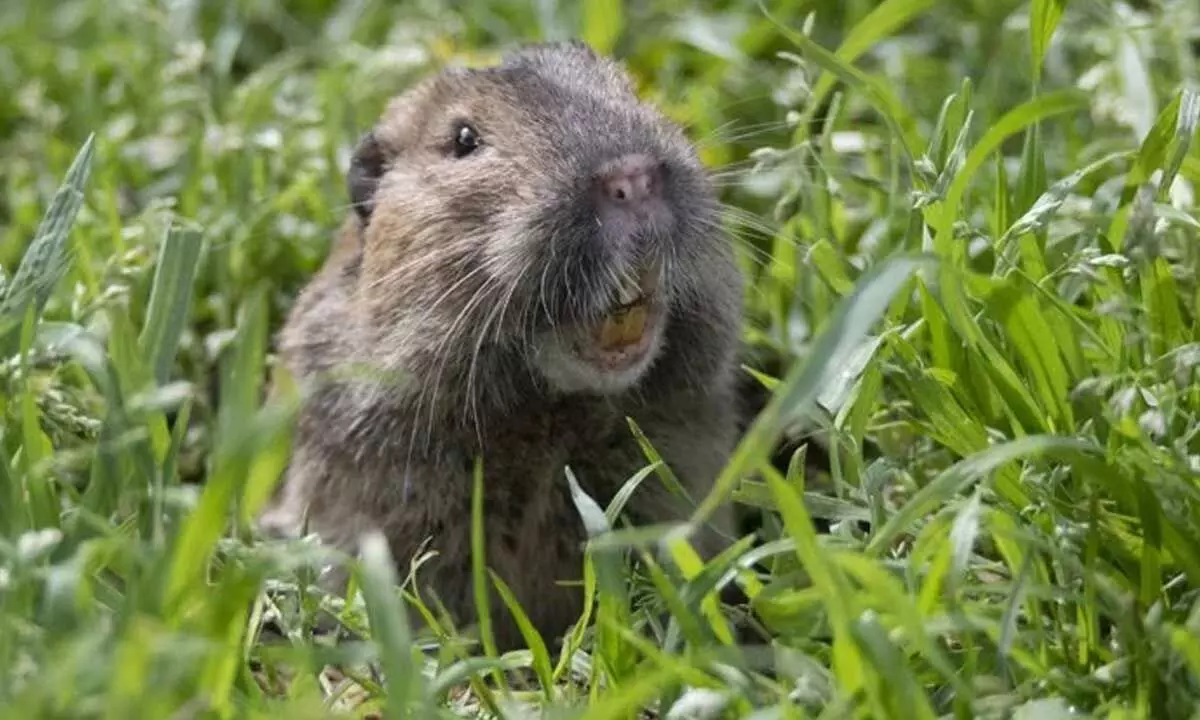Scientists Discovered First Instance Of Another Mammal "Farming"

Scientists Discovered First Instance Of Another Mammal "Farming"
- The little creatures are believed to cultivate the longleaf pine roots that grow into their houses
- Southeastern pocket gophers are the first non-human animal farmers
When it comes to farming, it was once believed that humans were the only mammals. However, depending on how rigidly we define "farming," it turns out that we may not be the only mammals.
Geomys pinetis, a species of pocket gopher, has been found to engage in agriculture. The little creatures are believed to cultivate the longleaf pine roots that grow into their houses, according to measurements taken on a field where tunnels they have dug may be found.
These meandering tunnels, which are hundreds of metres long, are constantly being altered and improved.
The definition of farming and what does not is a topic of some scientific disagreement, but the authors of the new study identify several unmistakable signs that gophers are experts at managing roots.
According to University of Florida researcher Francis Putz, southeastern pocket gophers are the first non-human animal farmers. Ant, beetle, and termite species are all familiar with farming, while other mammals are not.
Sewer pipes, which are frequently stressed by root development, served as the inspiration for the gopher research project. The research team was interested in learning whether roots were always attempting to encroach into the gophers' tube homes and how the rodents might grow the food supply in both their pre-existing tunnels and new burrows.
The researchers estimated that the root growing into the tunnel network could provide 20–60% of the daily calories needed by the creatures, and it takes a lot of energy to maintain these underground networks. They did this by observing root growth in a single section of a gopher network tunnel.
Once the roots enter the burrows, gopher urine and faeces stimulate their growth. Even while it may not be the most advanced type of farming, the researchers contend that it counts as being something similar to what humans do.
It is also obvious that the animals put out effort to protect their crops. In other words, what qualifies this as farming is the upkeep of the burrows and the control of the environmental factors that allow roots to continue to grow.
According to zoologist Veronica Selden of the University of Florida, "They're providing this great habitat for roots to grow and fertilising them with their faeces."
The gophers rarely impede on human operations because they only have access to the roots that poke into the tunnels as nourishment. According to the experts, they are crucial "ecosystem engineers" because they aerate the soil as they burrow and bring nutrients back to the surface.
While the research team notes that this hasn't always been the case with human farming, some experts would contend that true farming necessitates the act of actually planting crops, as well as aiding in their growth and harvesting them.
One example of farming that involves carefully managing crops rather than planting them is the cultivation of forest fruit trees. This concept could be applied to any perennial crop that grows on its own. Gophers can be considered farmers under that criteria.
Next Story











